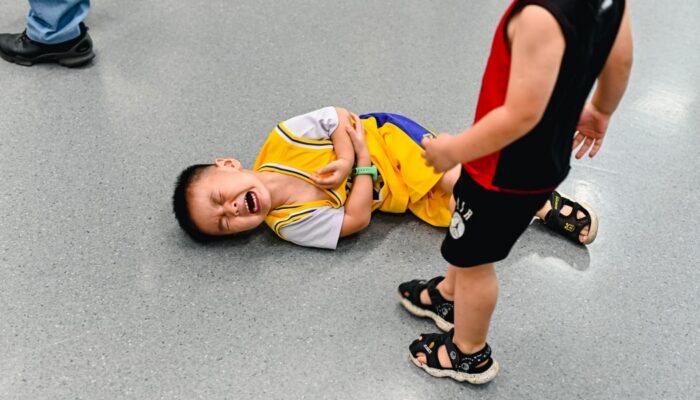
By Grace Felizardo
Understanding why children misbehave and responding appropriately can save you a great deal of heartaches and headaches. A child’s misbehavior may be caused by their unmet needs, their uniqueness, or your disciplining style.
Many times, a child’s misbehavior relates to their emotions. Similar to physical needs, our emotional needs are God-given. The emotional needs that are crucial for parents to focus on are: a child’s need to be loved and to belong; their need to be forgiven and accepted; and their need to feel competent and significant.
It’s difficult to love, accept and respect our children if we didn’t experience love and acceptance ourselves when we were growing up. To some degree, my parents did supply my emotional needs when I was growing up and later in life, God brought me sets of friends who made me feel that I belonged and that I was significant. I was re-parented in a sense. Because of this, I can meet the needs of my children with less failure and fumbling than my parents met mine.
I grew up in a home where my siblings and I were scolded and spanked when we skinned our knees playing. I, however, have learned to calm my children down while attending to their wounds. I find that respectful communication is a key to getting through to them. I know that skinned knees are not forms of misbehavior that call for punishment. I also accept the fact that children are still physically uncoordinated. These incidents can become opportunities where the kids feel loved and accepted.
Two years ago, I enrolled my 8-year old son, who has learning disabilities in SPED. But because I wanted to check and see whether my son could cope with the work and pressure of the regular class, the school gave in to my request to let my son sit in their regular class. After a month, he wanted to quit school. I naively thought he was just lazy and naughty. My son, in his frustration, must have felt incompetent. Finally, I admitted to myself that my son has genuine limitations and has his own time frame for learning. When I moved him back to SPED, he slowly gained self-confidence and felt acceptance. Last school year, he finished second grade in a regular school.
God designed parents to be the ones who primarily meet the emotional needs of their children. In my observation, it is when children’s hearts are empty that they act in ways we label “misbehavior.” Before reprimanding or spanking my kids to correct their behavior, I purposefully think about whether their emotional needs are being met.
If my children do purposefully misbehave, I reprimand them and discipline them if I have to. All the while, I try to remember that my children are still immature; that they are unique persons, not exactly like me so I try not to impose; and lastly, that they have sinful natures like adults. I remind myself to forgive them as I am lavishly forgiven.
I once saw a friend’s child throw a tantrum because he wanted a new toy. She obliged and bought it just to pacify him. Sometimes, it is easier to give in than to have the patience to discipline. However, when we give in to tantrums, our children will continue to use them to get their own way with us. Children learn whatever behavior is rewarded, whether it is positive or negative behavior. Furthermore, children stop misbehaving when they experience painful consequences. If my friend had refused to buy her son the toy, he would have learned that throwing tantrums will not get him anywhere.
Children stop behavior that has unpleasant natural consequences. For instance, my toddler learned to listen and obey when he insisted on touching a hot pan after I had warned him not to. For misbehaviors that are without built-in painful consequences, appropriate logical consequences may help us teach our children to listen. For example, my tweener, who exceeded her allotted computer time use, was not allowed to use the computer for a while.
Misbehavior is not always what it seems to be. It may just be the result of possible unmet needs, or of our children displaying their own personalities. It may be the result of our discipline style. But, if their needs are met and our discipline is carefully thought out, a child’s misbehavior should be lovingly and appropriately corrected.




